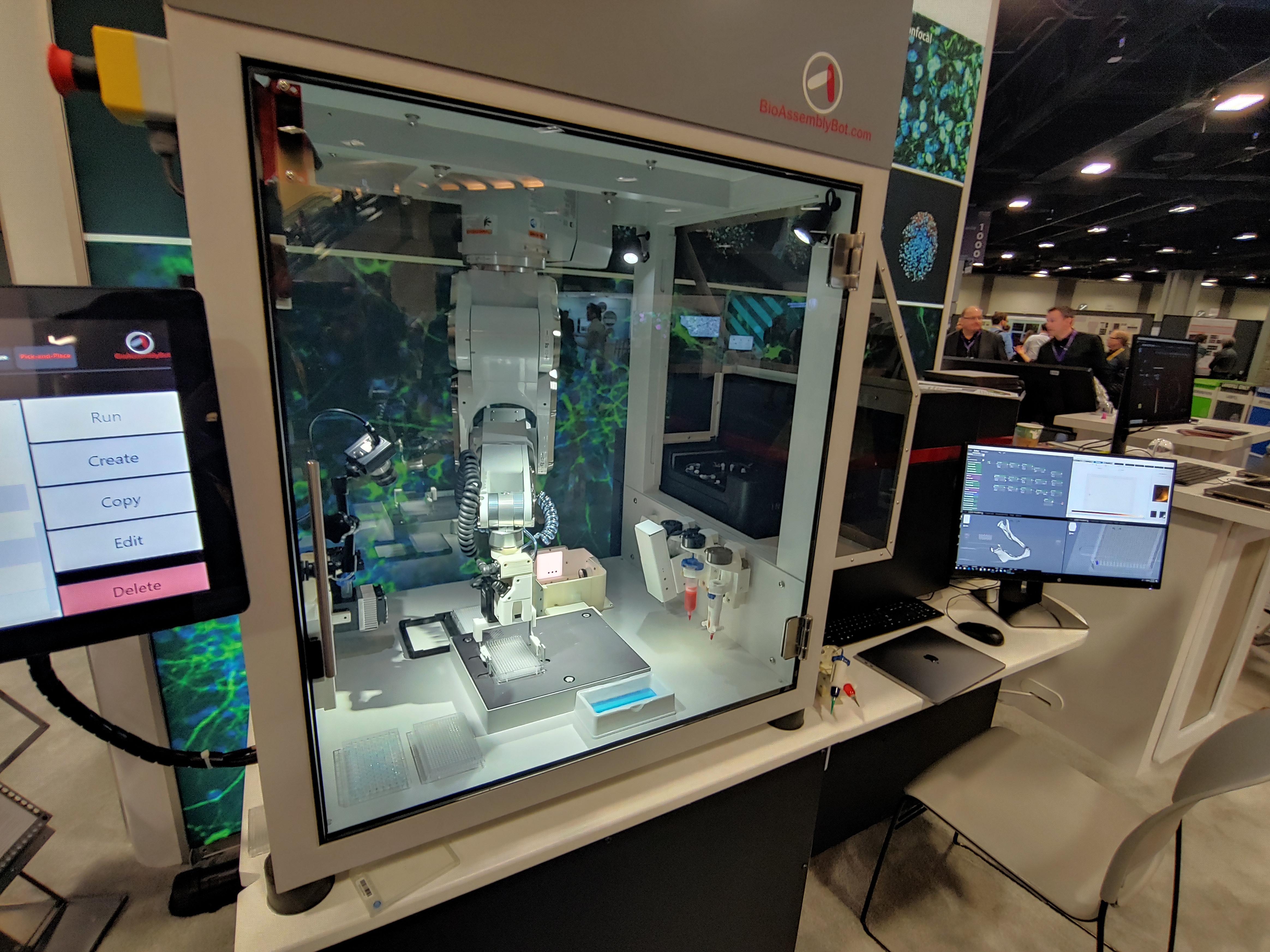December 11, 2019 -- On Sunday, December 8, GE Healthcare Life Sciences and Advanced Solutions Life Sciences announced a strategic partnership for their integrated IN Cell Analyzer and BioAssemblyBot systems.

This all-in-one system built specifically for life science researchers provides them with the unique ability to execute advanced protocols for drug discovery and tissue regeneration. Currently, biopharmaceutical companies test their drugs in 2D models and animal models. Precise 3D models provide a more physiologically relevant environment for drug testing because they mimic human reactions.
"The power of both of these platforms brings a new level of efficiency, speed, and quality with
assay designs and 3D biofabrication," says Michael Golway, President & CEO of ASLS.
Two things set this system apart from other bioprinters on the market. First, the software package combines TSIM 3D CAD design software, BioApp workflow tool (from Advanced Solutions), with IN Carta cell analysis software (from GE Healthcare) provides scientists with easily automated tissue modeling processes. Traditional 3D bioprinters are not designed for quality or interoperability with the high-throughput screening methods that pharmaceutical developers use to identify drug candidates. The collaboration will integrate a number of technologies and software to address this concern.
And second, a huge value-add of this product combination comes from the brand equity of GE Healthcare in combination with the superior customer service of Advanced Solutions. Each purchase comes with a collaboration package including at least 20 hours of product consulting and a promise of guaranteed callback times of two-hours for customer service inquiries. This is absolutely critical when working with new technologies.
The integration between IN Cell Analyzer (GE Healthcare) and BioAssemblyBot (Advanced Solutions) enables the automated inclusion of cellular imaging information into the tissue modeling process so that new therapies can be scaled more quickly and effectively.
Copyright © 2019 scienceboard.net






